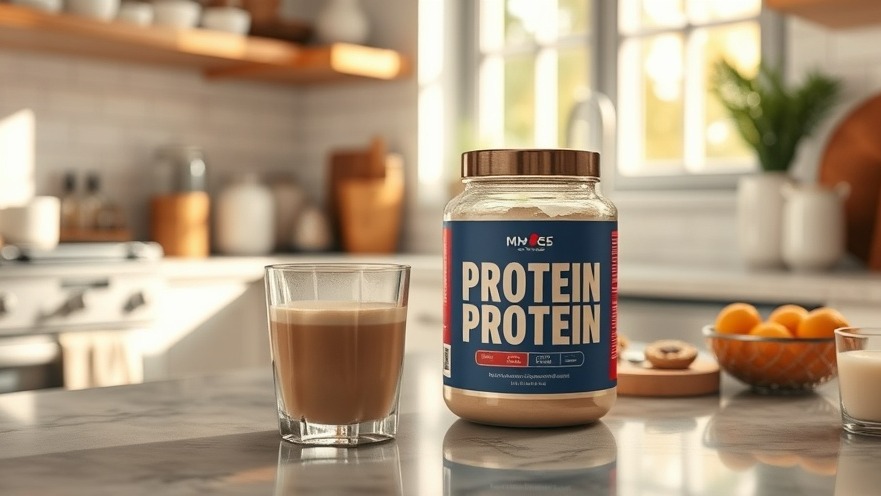
Understanding Protein Powders: A Vital Wellness Tool
Protein powders have become ubiquitous in the fitness world, appealing to more than just elite athletes. These supplements serve as convenient, nutrient-rich allies for anyone looking to enhance their diet, particularly those juggling busy schedules or dealing with dietary restrictions. Given their benefits—from supporting muscle growth and aiding recovery to assisting in weight management—it’s essential for practitioners and patients alike to demystify the surrounding myths.
Myth 1: Protein Supplements Are Only for Bodybuilders
A common misconception is that protein powders are only needed by strength trainers and bodybuilders. This myth predominantly arises from the visibility of these products in gyms, which tend to cater to an audience focused on extreme muscle gain. In reality, individuals of all activity levels can benefit from enhanced protein intake. For instance, older adults might require more protein to maintain muscle mass and strength. Limiting protein supplements to one demographic neglects the holistic health strategies that support diverse patient needs.
Myth 2: More Protein Means Faster Muscle Growth
Another fallacy is that consuming an excess of protein necessarily leads to significant muscle growth. While protein is vital for muscle repair and development, factors such as exercise intensity, genetics, and overall nutrition play critical roles in muscle development. Sufficient calorie intake and a balanced diet are also essential components that cannot be overlooked.
Myth 3: Plant-Based Proteins Are Inferior
Some individuals dismiss plant-based protein powders, believing them to be less effective than their animal-derived counterparts. However, numerous studies highlight that plant proteins, when consumed as part of a balanced diet, can effectively meet protein needs and support fitness goals. Practices that encourage inclusivity in dietary options help create a more patient-centric health approach, ultimately aiding practices in establishing trust and rapport with patients.
Myth 4: Protein Powders Hurt Kidney Health
Concerns regarding protein powders and kidney health are widespread, particularly among individuals with pre-existing kidney conditions. While overconsumption of protein can strain kidneys, moderate intake within a balanced diet isn’t harmful to healthy individuals. Education surrounding appropriate usage and doses can empower patients to incorporate protein supplements safety into their health regimen.
Myth 5: All Protein Powders Are Created Equal
With the growing market for protein powders, there is a wide range of options available, each varying significantly in quality, ingredients, and processing methods. Not all protein powders are equal; certain brands prioritize cleaner ingredients and minimal processing, while others may contain excess sugars and fillers. Encouraging patients to review labels and choose high-quality products promotes informed health decisions.
Actionable Insights for Practitioners
As healthcare providers, staying informed about these common misconceptions allows you not only to educate your patients but also to build credibility within your practice. It’s vital that as you support them in achieving their wellness goals, you remain clear about evidence-based research concerning protein supplementation. Open conversations about dietary habits, supplement efficacy, and their unique health needs can significantly enhance patient trust and satisfaction.
The Importance of Evidence-Based Communications
In an era saturated with conflicting opinions and sensational claims about health and fitness, empathetic communication is essential. By addressing your patients’ concerns and misconceptions with compassion and factual clarity, you pave the way for more productive, health-conscious dialogues.
For concierge medical practice owners aiming to grow their brand and establish authority in patient wellness, embracing nutrition education—including topics like protein powders—is an excellent strategy. It positions you as a trusted source of knowledge and support, ultimately enhancing patient relationships.
 Add Row
Add Row  Add
Add 




Write A Comment